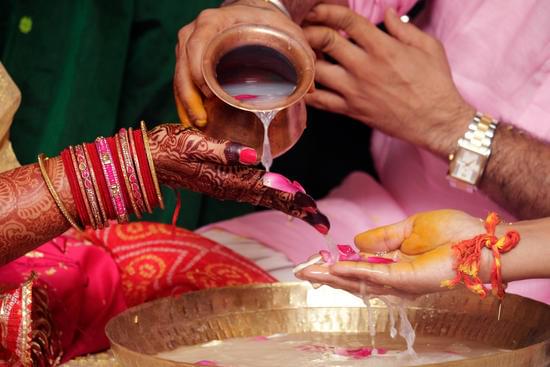Are you interested in learning how to become a wedding officiant in Virginia? The role of a wedding officiant is an essential part of the wedding ceremony, responsible for overseeing the exchange of vows and legally binding the marriage. In this article, we will explore the unique aspects of becoming a wedding officiant in Virginia, including legal requirements, training and education, business establishment, ceremony creation, communication and relationship building, officiating your first wedding, and continued growth and development.
A wedding officiant plays a crucial role in uniting couples in marriage, ensuring that their union is recognized by law. As such, understanding the legal requirements and responsibilities of officiating weddings in Virginia is vital. From obtaining necessary credentials to registering as an official wedding officiant, there are specific steps one must take to fulfill this role within the state.
In addition to legal considerations, it’s important for aspiring wedding officiants to understand the significance of their role and responsibilities. Officiating a wedding is not only about conducting a ceremony but also about creating a meaningful and memorable experience for the couple.
This involves crafting unique ceremonies tailored to the preferences of each couple and developing strong communication skills with clients and vendors. Throughout this article, we will delve into these topics to provide comprehensive guidance on becoming a successful wedding officiant in Virginia.
Understanding Legal Requirements in Virginia
Marriage Laws and Requirements in Virginia
Before taking on the role of a wedding officiant in Virginia, it is important to have a comprehensive understanding of the state’s marriage laws and requirements. In Virginia, ordained ministers, judges, justices of the peace, and certain other officials are authorized to officiate weddings. It is essential to familiarize yourself with the specific legalities surrounding marriage licenses, who can solemnize a marriage, and any restrictions or regulations that may apply.
How to Obtain the Necessary Legal Credentials
To become a wedding officiant in Virginia, individuals need to be legally authorized to perform marriage ceremonies. This can typically be achieved by getting ordained through an established religious organization or by obtaining a one-time authorization from the circuit court clerk’s office. The process may vary depending on your personal beliefs and credentials, so it’s important to research the options available and follow the appropriate procedures for ordainment or authorization.
Registering as a Wedding Officiant in Virginia
Once you have obtained the necessary legal credentials to officiate weddings in Virginia, it is important to ensure that you are registered with any relevant local or state authorities. Some counties may require wedding officiants to file their credentials with the Clerk of Court before performing ceremonies.
By following these registration requirements diligently, you can ensure that you are operating within the legal boundaries and offering your services as a fully recognized wedding officiant. Understanding these legal requirements is fundamental for anyone considering how to become a wedding officiant in Va.
Officiant Training and Education
Becoming a wedding officiant in Virginia is an exciting and rewarding venture, but it also comes with certain responsibilities and requirements. To ensure that you are fully prepared for the role, it is important to seek out proper training and education. There are various options available for those aspiring to become wedding officiants, each offering valuable insights and skills necessary to excel in this role.
### Options for Officiant Training and Education:
1. Online Courses: Many organizations offer online courses specifically tailored to individuals looking to become wedding officiants. These courses cover a wide range of topics, including legal requirements, ceremony customization, and public speaking tips.
2. In-Person Workshops: Attending in-person workshops can also be beneficial for those looking to become wedding officiants in Virginia. These sessions often provide hands-on training and the opportunity to interact with experienced officiants.
3. Mentorship Programs: Another valuable option for aspiring wedding officiants is to seek mentorship from established professionals in the field. This allows for personalized guidance and advice from someone with firsthand experience.
### Importance of understanding the role:
It is essential for anyone looking to become a wedding officiant in Virginia to have a comprehensive understanding of the responsibilities that come with this role. Officiants play a pivotal part in joining two individuals in marriage, and as such, they must be well-versed in various aspects of wedding ceremonies. Through adequate training and education, aspiring officiants can learn how to craft meaningful ceremonies, communicate effectively with couples, and navigate any challenges that may arise during the process.
### Benefits of participating in training programs:
Engaging in officiant training programs offers numerous benefits beyond just meeting legal requirements. Not only does it provide the necessary knowledge and skills needed to perform the duties of a wedding officiant effectively, but it also instills confidence and professionalism. Additionally, participating in these programs can help differentiate you from other wedding officiants by showcasing your commitment to ongoing learning and improvement.
By actively seeking training and education opportunities as you embark on your journey towards becoming a wedding officiant in Virginia, you can ensure that you are well-prepared for this significant role while also setting yourself up for success within the industry.
Creating Your Officiant Business
Establishing yourself as a wedding officiant in Virginia involves more than just obtaining the necessary legal credentials and training. It also requires setting up a business entity and understanding how to navigate marketing strategies for success. When starting your officiant business, one of the first steps is to determine what type of business structure works best for you.
This could be a sole proprietorship, partnership, corporation, or limited liability company (LLC). Each structure has its own advantages and disadvantages in terms of liability, taxation, and record-keeping requirements.
After deciding on the proper business structure, the next step is obtaining any required permits or licenses to operate as a wedding officiant in Virginia. This may include registering your business with the state, obtaining a business license from your local government, and ensuring compliance with any local zoning laws or regulations that may apply to your specific area. Once all legalities are taken care of, it’s important to invest time into developing an effective marketing strategy.
Through strategic online presence such as creating a website with professional photoshoots as well as social media profiles showcasing your services can help generate leads for potential clients. Networking with other wedding vendors such as photographers, florists, caterers and venues can also lead to referrals for officiating services.
| Aspect | Action |
|---|---|
| Business Structure | Determine which business entity works best (e.g. sole proprietorship, LLC) |
| Permits & Licenses | Obtain necessary permits and licenses from state and local government |
| Marketing Strategy | Create a professional online presence and network with other wedding vendors |
Crafting Unique Wedding Ceremonies
Before becoming a wedding officiant in Virginia, it is important to understand the different types of wedding ceremonies that couples may choose to have. From traditional religious ceremonies to more modern and personalized ones, there are many ways to tie the knot. As an officiant, it is crucial to be familiar with these variations so that you can accommodate the couple’s preferences and help them create a ceremony that truly reflects their relationship and values.
How to Personalize and Tailor Ceremonies to the Couple’s Preferences
One of the most rewarding aspects of becoming a wedding officiant in Virginia is the ability to work closely with couples to personalize and tailor their wedding ceremonies. This involves meeting with them, getting to know their love story, and understanding what elements they want to include in their ceremony. Whether it’s incorporating cultural traditions, writing personal vows, or including meaningful readings, the process of helping couples craft a unique ceremony is both creative and fulfilling.
Tips for Creating Memorable and Meaningful Wedding Ceremonies
As a wedding officiant in Virginia, your role goes beyond simply performing legal duties – you have the opportunity to create a truly memorable and meaningful experience for couples on one of the most important days of their lives. Whether it’s through thoughtful words, gestures, or rituals during the ceremony, your ability to set a warm and inclusive tone can leave a lasting impression.
By paying attention to details and putting effort into crafting every aspect of the ceremony, you can ensure that couples walk away feeling like their love story was honored and celebrated in a special way.
Communication and Relationship Building
Developing strong communication skills is essential for anyone looking to become a wedding officiant in Virginia. The ability to effectively convey ideas, actively listen, and manage expectations is crucial when dealing with couples who are planning their special day. Building rapport and trust with potential clients is equally important, as it establishes credibility and sets the foundation for a successful working relationship.
In addition to working closely with couples, wedding officiants must also collaborate with various wedding vendors such as event planners, photographers, and venue staff. Effective communication with these professionals ensures that everyone involved in the ceremony is on the same page and working towards a common goal. Handling any conflicting opinions or navigating tricky situations with grace and professionalism will help maintain positive relationships within the wedding industry.
| Key Points | Details |
|---|---|
| Effective Communication Skills | Active listening, clear articulation, managing expectations |
| Building Rapport with Clients | Credibility, trust, establishing a positive working relationship |
| Collaboration with Vendors | Working together towards common goals, managing conflicts professionally |
By honing these important interpersonal skills, aspiring wedding officiants can position themselves for success in the industry. Mastering communication and relationship building not only enhances their ability to serve couples effectively but also contributes to a fulfilling career as a wedding officiant in Virginia.
Officiating Your First Wedding
Preparing for your first wedding ceremony can be an exciting and nerve-wracking experience. As a wedding officiant in Virginia, it’s essential to ensure that you are well-prepared and confident in your role. Here are some tips for officiating your first wedding:
1. Familiarize Yourself with the Ceremony:
Before the big day, make sure you have a thorough understanding of the ceremony script and any specific customs or traditions requested by the couple. Practice reciting the script multiple times to ensure that you feel comfortable with the flow and pacing of the ceremony.
2. Connect with the Couple:
Meet with the couple before the wedding day to discuss their vision for the ceremony. Learn about their love story, special moments, and any personal touches they want to include. Building a rapport with the couple will not only help you create a more personalized ceremony but also ease any nerves on the wedding day.
3. Stay Calm and Confident:
On the day of the wedding, it’s natural to feel a bit nervous, especially if this is your first time officiating. Take deep breaths and remind yourself of all the preparation you’ve done. Remember that couples often look to their officiant for reassurance, so projecting confidence is key.
4. Reflect on Your Experience:
After officiating your first wedding, take some time to debrief and reflect on how everything went. Consider what went well and areas where you could improve. Use this reflection as an opportunity to grow and enhance your skills as a wedding officiant.
By following these tips, you can help ensure that your first experience as a wedding officiant in Virginia is successful and memorable for both you and the couple. With each ceremony you officiate, you’ll continue to gain valuable experience and confidence in your role.
Continued Growth and Development
As you embark on your journey to become a wedding officiant in Virginia, it’s important to remember that the learning and growth process doesn’t end once you’ve obtained your legal credentials and officiated your first wedding. In fact, continued growth and development are essential for building a successful and fulfilling career as a wedding officiant in the state.
One of the key aspects of continued growth and development as a wedding officiant is taking advantage of opportunities for ongoing professional training and education. There are various programs and resources available that can provide valuable insights into different types of wedding ceremonies, communication techniques with couples and vendors, as well as conflict resolution strategies.
By participating in these programs, you can further hone your skills and expand your knowledge base, ultimately enhancing the quality of service you provide to couples.
In addition to professional development, consider expanding your officiant services and offerings to cater to a wider range of couples. Whether it’s specializing in themed weddings, offering premarital counseling services, or providing bilingual ceremonies, finding unique ways to enhance your offerings can help set you apart in the competitive wedding industry. By continuously evolving and adapting your services based on market demands and trends, you’ll be better positioned for long-term success as a wedding officiant in Virginia.
Overall, becoming a successful wedding officiant in Virginia requires dedication not only to mastering the legal requirements but also to ongoing self-improvement. By continually seeking opportunities for growth and development, expanding your services, and providing exceptional experiences for couples, you can build a thriving career as a valued member of the wedding industry landscape.
Frequently Asked Questions
How Do I Become a Registered Officiant in Virginia?
In Virginia, becoming a registered officiant involves submitting an application to the Circuit Court in the county where you intend to perform marriages. You may need to provide documentation such as a letter of good standing from your religious organization or proof of ordination.
Who Can Legally Officiate a Wedding in Virginia?
In Virginia, anyone who is authorized by a religious organization or has been appointed as a civil celebrant by the Circuit Court can legally officiate a wedding. This includes ordained ministers, priests, rabbis, and even secular officiants.
How Hard Is It to Get Ordained in Virginia?
Getting ordained in Virginia is not particularly difficult, especially for those seeking ordination through online religious organizations. However, it’s important to ensure that your ordination meets the legal requirements set forth by the state in order to officiate weddings legally.

I have been involved in marriages for over 20 years helping couples and singles understand more about them.





